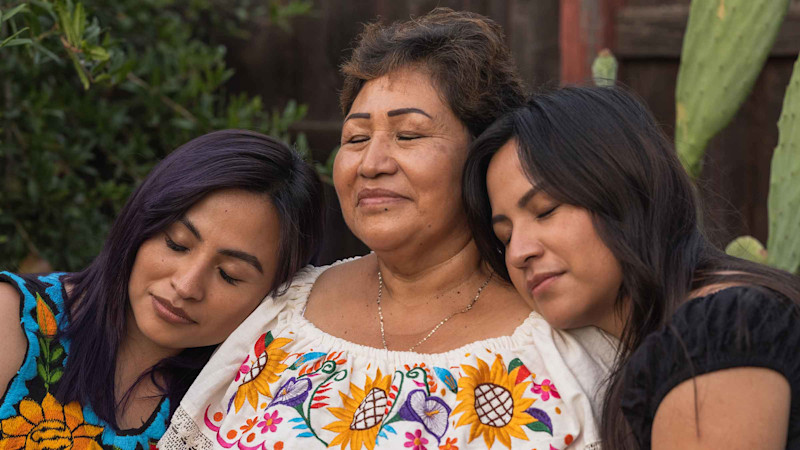
Healing Family Caregiver Self-Care Checklist
Being a caregiver is one of the most challenging roles anyone can take on. You are constantly giving to others. Far too often, you’re putting your needs on the back burner, and it can feel incredibly isolating. It’s perfectly normal to feel tired, frustrated, and overwhelmed.
This caregiver self-care checklist isn’t about adding more to your plate. Instead, it offers small ways for you to feel a bit more heard, validated, and cared for in your daily life. Some of these may not be possible for you or may not provide the relief you need, and that’s okay. Take only the ones that work for you.
Remember, even small steps can make a big difference. Your well-being matters just as much as that of the person for whom you’re caring.
1. Give yourself space to vent
Sometimes, you just need to let it all out. Whether it’s yelling into a pillow, crying in the shower, or venting to a trusted friend, moments of release are all a form of self-care.
If writing helps you process, consider creating a personal CaringBridge to share your thoughts and experiences with your support system. Whether you’re seeking advice or writing to vent, it’s a safe space where you can be honest about what you’re going through.
Bottling up your emotions can lead to more stress. Letting go, even just a little, can make you feel lighter and more in control. Your feelings are valid, and it’s okay to express them in ways that feel right to you.
2. Delegate tasks to friends and family
We know it’s not always possible to delegate tasks. This is especially true when family members live far away or when you don’t have many close friends. But help is sometimes just a click away.
Use CaringBridge to let others know exactly what you need, whether it’s meal delivery, grocery shopping, or financial support through GoFundMe. Clear, specific requests can make it easier for others to lend a hand, even from a distance or as an anonymous donor. Don’t be afraid to ask for exactly what you need. People often want to help but don’t know how.
Delegating to others may sound like just another task, but it can provide relief in many ways. Using shareable lists can help people see what’s already taken care of and what still needs to be done, removing some of the communications and logistics from your plate.
You don’t have to do everything alone. When possible, sharing the load can make a big difference in your daily life.
3. Let yourself daydream

It’s perfectly normal to fantasize about better scenarios. Try not to feel guilty about escaping into daydreams—they can provide a mental break from the stresses of constant caregiving.
Imagining yourself on a peaceful beach or living a different life for a moment can be a soothing way to cope. Daydreaming can offer a brief respite and help recharge your mental batteries. It’s a harmless way to find a bit of joy and hope amid challenging times. Allow your mind to wander, and find comfort in these small escapes.
4. Lean into sarcasm and humor
An important addition to your caregiver self-care checklist is humor. Humor and sarcasm can be powerful tools for stress relief, when appropriate. It’s okay to find moments of laughter even in tough situations. Sharing a funny story or a sarcastic comment with a friend or fellow caretaker might help you feel better, even if just for a while.
Don’t feel bad about finding humor in difficult moments; it’s a natural coping mechanism. A good laugh can be incredibly refreshing and provide a much-needed mental break. Those who aren’t caretakers may not fully understand or appreciate the humor, and that’s okay. If it helps you, then it’s good self-care.
Acknowledging and expressing dark humor can also be a liberating way to process all the other emotions that come along with caregiving. Let humor be your ally, helping you navigate the rough patches of your journey.
5. Let yourself indulge
While staying healthy is important, sometimes you just need to treat yourself. It’s okay to enjoy that piece of cake or to grab a burger from the drive-thru. Don’t feel bad if you need to spend a night watching television or just be “lazy.” Indulgences can provide comfort and a small sense of normalcy when life feels anything but normal.
These moments of enjoyment can be little bursts of happiness in your day. Don’t feel guilty for wanting something that makes you feel good. Embrace these treats as small acts of kindness to yourself.
6. Be honest with people

It can be exhausting to fake emotions or hide your true feelings. When you’re with caring people, try to be honest with them about what you’re experiencing. Letting people know how you’re really doing can lift some of the burden of pretending and might even bring some much-needed support.
Honesty can foster deeper connections with those around you. It can also help others understand your situation better. When they really know what you’re going through, they can offer more meaningful help instead of saying vague “let me know what I can do” statements. Remember, you don’t have to sugarcoat your reality for anyone.
7. Break the tension with movement
While the time and energy for a full-blown exercise routine may be difficult when you’re caretaking, try focusing on small bursts of movement to break up the tension in your body. A quick dance session, a few yoga poses, or simply unclenching your jaw can help.
These tiny actions can make a big difference in how you feel. Moving your body, even for a few seconds, can release built-up stress. It can be as simple as stretching your arms or taking a few deep breaths. Little movements can refresh your mind and body, giving you a brief but valuable reset.
8. Talk with other family caregivers
Connecting with other family caregivers can provide a sense of community and understanding. In just a few minutes, you can find a caregiver support group online or in person that’s filled with people in situations similar to yours.
Sharing your story and hearing the stories of others can help you feel more supported. You might find new coping strategies and insights from others, and knowing you’re not alone can make the caregiving journey a bit easier.
9. Look for moments of peace
In the chaos of caregiving, finding even small moments of peace can be a lifeline. These moments can be as simple as sipping a cup of tea in silence or taking a few deep breaths while sitting outside.
Allow yourself these tiny breaks to recharge and regroup. Texts, phone calls, and forms can all wait an extra few seconds before being addressed. It’s okay to seek out these quiet moments; they’re essential for your mental health.
10. Stay connected with your loved ones
Staying connected with your loved ones, even from a distance, can provide emotional support and comfort. A quick video call, a heartfelt text, or sharing photos can help bridge the gap and remind you that you’re not alone.
These connections can offer encouragement and a sense of normalcy amid your daily challenges. Don’t hesitate to reach out and let others into your world. Lean on them when you need to; they can help lighten your load.
11. Celebrate small wins

In the caregiving journey, it’s important to celebrate the small wins. Whether it’s a day where everything went smoothly or a moment of laughter, acknowledge and appreciate these positives.
Celebrating small successes can boost your morale and provide much-needed motivation. Take pride in these moments—they matter more than you might realize.
How to recognize caregiver burnout
Caregiver burnout is a real and serious issue, even among those caring for their spouses. It’s important to recognize the signs, such as feeling overwhelmed, being constantly fatigued, or losing interest in activities you once enjoyed.
If you’re experiencing these symptoms, it might be time to seek additional support in order to recognize and manage your burnout. This support can come in many forms, from therapy and counseling to seeing your primary care provider to check up on your physical wellbeing.
Ignoring burnout is not a solution. Over time, burnout can lead to severe physical and emotional health issues. It’s crucial to address these feelings early and find ways to manage them. Always remember: Seeking help is a sign of strength, not weakness.
What’s your story?
Every caregiver’s journey is unique, and sharing your story can be incredibly powerful for you and for others. Whether it’s a tip that’s helped you or an experience that others might relate to, we’d love to hear from you.
Please leave your stories and your own caregiver self-care checklist in the comments below. Your voice matters, and your experiences can help others feel less alone. Your insights might provide the exact support someone else needs.
Remember, being a caregiver is a marathon, not a sprint. It’s essential for you to care for yourself along the way. You deserve compassion, kindness, and support just as much as the person you’re caring for. We look forward to hearing from you and learning about your journey.